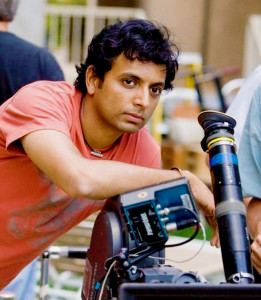 I’m a morning-news junkie. I get up and turn the news on in my bedroom, then go down to the kitchen to get coffee and turn on a different news channel and then go up to my bathroom to shower and get ready and turn on a third news channel. I feel I need to know what is going on in the world, I don’t need to know who shot whom at what bar last night or how the traffic is doing unless I have to drive to the airport so I skip local news and look for national and international news and stories that actually address important issues. Between a few different sources I hope to get at least an approximation of what is really going on.
I’m a morning-news junkie. I get up and turn the news on in my bedroom, then go down to the kitchen to get coffee and turn on a different news channel and then go up to my bathroom to shower and get ready and turn on a third news channel. I feel I need to know what is going on in the world, I don’t need to know who shot whom at what bar last night or how the traffic is doing unless I have to drive to the airport so I skip local news and look for national and international news and stories that actually address important issues. Between a few different sources I hope to get at least an approximation of what is really going on.
This morning an interview caught my attention because it was about education. As it turned out the interview was with M. Night Shyamalan who is a movie guy—writer, producer and director. The interview was a discussion of a book that he has just written entitled, “I Got Schooled: the Unlikely Story of How a Moonlighting Movie Maker Learned the Five Keys to Closing America’s Education Gap.” Since I was getting ready to go to the office I couldn’t give the program my undivided attention but I found it quite interesting.
Regarding Mr. Shyamalan, I don’t know what he goes by—is it “M” like in the James Bond movies or “M. Night” or “Night”—I don’t know because I don’t really follow much of anything relative to movies but, this fellow seemed quite bright and evidently with the help of some other bright people really looked into the subject of American education. Very often outsiders do a much better job of assessing a problem than do the experts who “should” know.
Mr. Shyamalan spoke of an event that helped shape his perception of what needed to be done in order to understand and address the inequality of education in America. This event was a discussion with a physician who taught at the medical school at the University of Pennsylvania. The doctor related how he would enlighten the incoming medical students regarding health. He evidently told his students that the real key to health involved only five pieces:
#1 Get 8 hours of sleep
#2 Have a healthy diet
#3 Exercise 3 times per week
#4 Pay attention to your mental/brain health
#5 Don’t smoke
These pieces make individual and collective sense but the big point was that you have to do all five—doing only four out of five did not produce a particularly good outcome.
This “aha moment” helped Mr. Shyamalan evaluate the educational data differently and formulate a set of criteria that would produce the needed outcome in total.
This “aha moment” for Mr. Shyamalan was also an “aha moment” for me this morning. Certainly one of the most frustrating aspects of my work is getting folks to address all of the pieces—not to miss or add pieces but to address the totality of their program. I have known that a huge part of our success with children has been our understanding of and our commitment to working with the whole child and addressing the gestalt of that child. Frustration comes when families do some of their program along with “some of this and some of that.” This revelation really reinforced to me the need to do all of the pieces. I’m sure as I continue to give this more thought I will gain even more insights.
I apologize if everything I related about the interview is not totally accurate. I was, after all, trying to get ready to run to the office for my first Skype meeting but I think I’m being reasonably accurate. I will order Mr. Shyamalan’s book and let you know what I think.
NACD parents—please write down the five keys to health and do your best to follow all of them. I think this is right on. Take care of yourselves.

 Between hearing horror stories about what is happening in education from our families, as well as reports and studies and seeing the results first hand day in and day out from our families, there are some glimmers of hope that we might survive in spite of our governments and institutions.
Between hearing horror stories about what is happening in education from our families, as well as reports and studies and seeing the results first hand day in and day out from our families, there are some glimmers of hope that we might survive in spite of our governments and institutions. I’m a morning-news junkie. I get up and turn the news on in my bedroom, then go down to the kitchen to get coffee and turn on a different news channel and then go up to my bathroom to shower and get ready and turn on a third news channel. I feel I need to know what is going on in the world, I don’t need to know who shot whom at what bar last night or how the traffic is doing unless I have to drive to the airport so I skip local news and look for national and international news and stories that actually address important issues. Between a few different sources I hope to get at least an approximation of what is really going on.
I’m a morning-news junkie. I get up and turn the news on in my bedroom, then go down to the kitchen to get coffee and turn on a different news channel and then go up to my bathroom to shower and get ready and turn on a third news channel. I feel I need to know what is going on in the world, I don’t need to know who shot whom at what bar last night or how the traffic is doing unless I have to drive to the airport so I skip local news and look for national and international news and stories that actually address important issues. Between a few different sources I hope to get at least an approximation of what is really going on. Today I have been seeing families in Bucharest, Romania. This is my second of eight days of seeing children and families here. I arrived in Bucharest after seeing children in Barcelona and London. Between these three cities I will have seen families from many different countries. All of these families have children with developmental issues; all of these families are dedicated to their children; and all of these families are assuming responsibility for their children and their children’s futures. They are all exceptional and can serve as models for parents and families everywhere, not just families of children with issues, but all families.
Today I have been seeing families in Bucharest, Romania. This is my second of eight days of seeing children and families here. I arrived in Bucharest after seeing children in Barcelona and London. Between these three cities I will have seen families from many different countries. All of these families have children with developmental issues; all of these families are dedicated to their children; and all of these families are assuming responsibility for their children and their children’s futures. They are all exceptional and can serve as models for parents and families everywhere, not just families of children with issues, but all families.